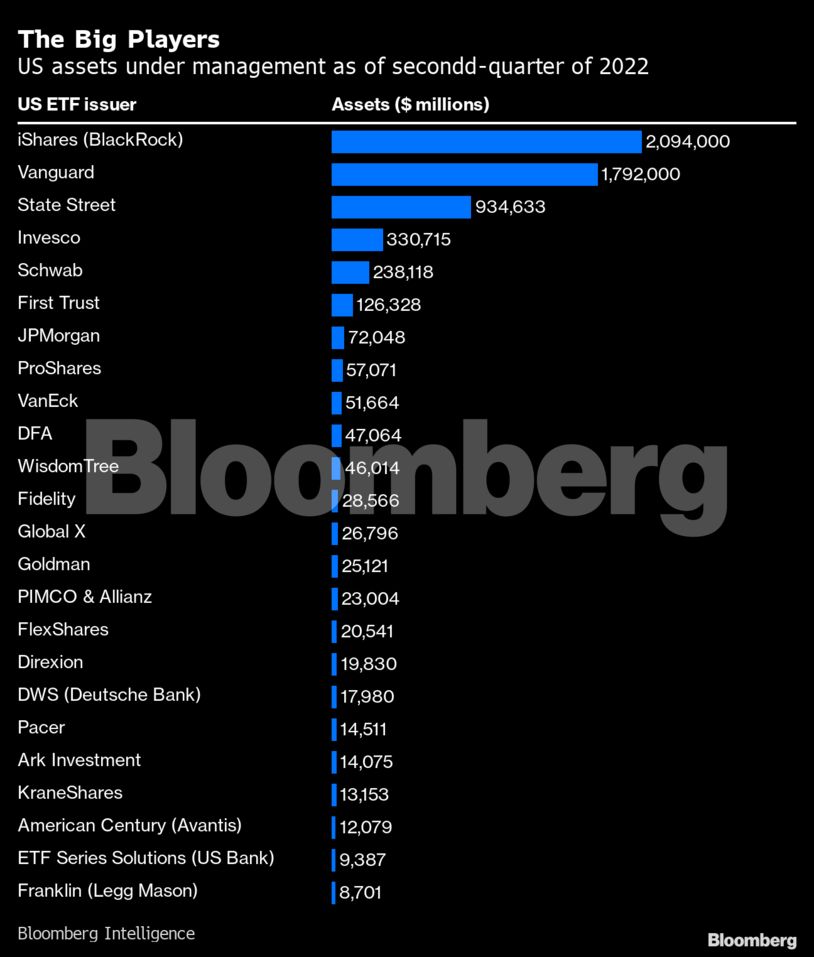Franklin Templeton Investments, the roughly $1.4 trillion asset manager known for its mutual-fund business, has its sights set on getting bigger in the cut-throat ETF market.
The San Mateo, California-based company aims to quadruple its exchange-traded funds business to $50 billion in the next three years, said Patrick O’Connor, head of global ETFs. That would put it roughly within the top 10 ETF managers, though well behind industry heavyweights Vanguard Group Inc. and BlackRock Inc., who each have at least $1.8 trillion under management. Franklin said it had $12 billion in ETF assets at the end of the first half of the year.

The push into ETFs comes as the industry continues to lure in cash even as equities plunged into a bear market. The leading issuers have been in an arms race to cut fees as more firms seek to profit from growing demand for the funds. Franklin intends to increase its footprint in part by converting some long-standing mutual funds to ETFs, a move growing in popularity as a way to lure retail customers who prefer the tax benefits exchange-traded products offer.
“People want the ETF wrapper,” said James Seyffart, ETF analyst at Bloomberg Intelligence.
In December, Franklin announced plans to convert two mutual funds to ETFs. The BrandywineGLOBAL - Dynamic US Large Cap Value Fund and Martin Currie International Sustainable Equity Fund, subject to shareholder approval, are expected to be effective in the third or fourth quarter of 2022, according to the firm.
Converting funds helps managers sell the benefits of ETFs, such as their tax efficiencies. ETFs generate fewer capital gains for investors due in part to their creation and redemption process.
“If you go that route rather than launching a new fund, you get to carry over the assets and you also get to carry over your track record,” Seyffart said. “Some of these funds from Franklin have been around for decades. So if they can carry over those track records that can help with institutions and other people who are looking for a certain level of assets and a certain amount of history before they invest in a fund.”
While beefing up its ETF lineup, the firm is also overhauling its brand recognition. The firm in July filed to rename 17 of its ETFs effective August 1 to better align with a single, identifiable name.
“We’ve decided to clean up our brands,” O’Connor said. “We wanted something to provide more clarity so that was kind of an easy evolution for us.”








